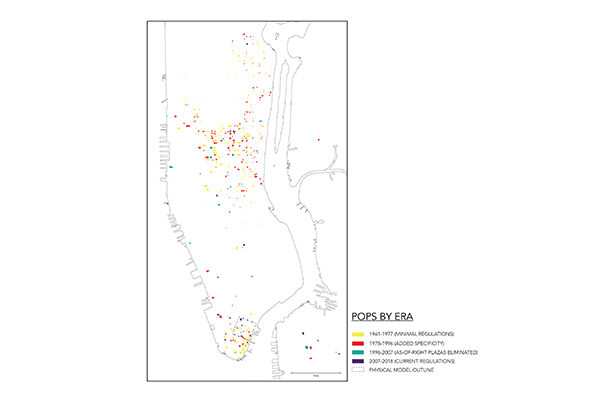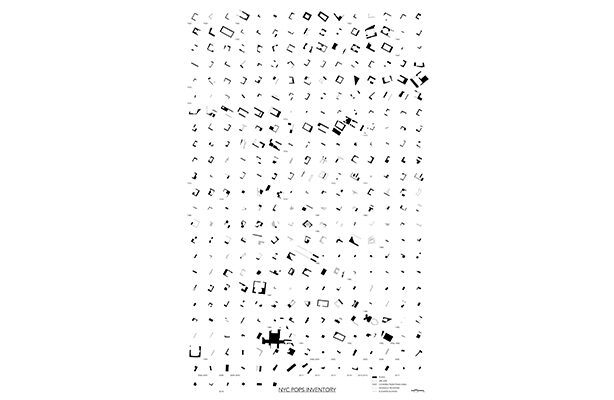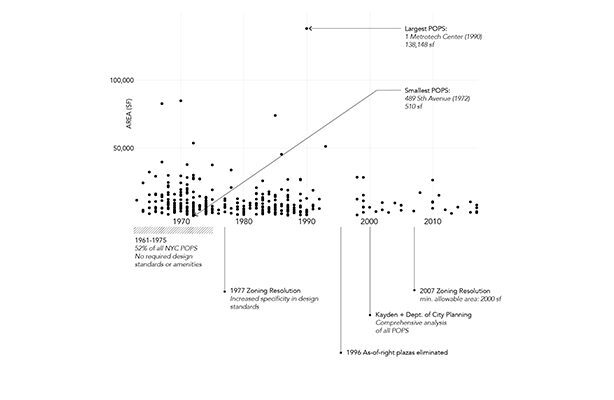News
Prof. Harkema’s POPS Inventory Published in New Book
Adjunct Associate Professor Lindsay Harkema’s critical inventory of privately owned public spaces (“POPS”) in New York City is published in the new book Urban Inventories by the Bureau d’études de pratiques indisciplinées of the École de design at the Université du Québec à Montréal. It appears in the chapter “Towards a Generic Public,” which presents a critical survey of POPS, i.e., types of public spaces created through a zoning incentive to developers in exchange for providing an open and publicly accessible space on the premises.
These “public” spaces are controlled, maintained, and operated by the private property owner. While regulated by municipal zoning laws and design standards, POPS are subjected to the material provisions and behavior guidelines of that private entity. Rather than offering dynamic spaces that augment the publicness of the urban environment, many POPS contribute to a surplus of banal open spaces. Their physical conditions blend together as variations on the same conventional themes: hard surfaces, fixed seating, and limited adaptability. Without distinct identity, these plazas assimilate as a distributed series of spaces of transience and anonymity.
The critique offered in “Towards a Generic Public” is that the standardization of POPS contradicts the inherent diversity and dynamism of the public realm. The inventory highlights the tendency towards generic sameness as a result of overly prescriptive regulation without a means of promoting uniqueness and adaptability of individual spaces. Enabled by private funding but coded by city planning, POPS have the potential to facilitate a greater variety of diversely inclusive publics as activators, rather than neutralizers, in the urban environment. However, a lack of criticality in this practice could result in the continued production of irrelevant and non-participatory spaces, further diluting what it means to be public in the contemporary city.






